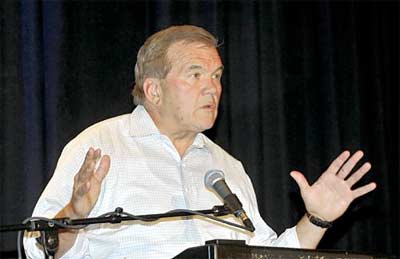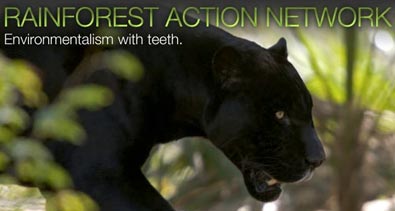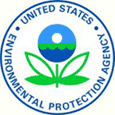Biblio
Coalbed Methane (CBM) Develoment in Wyoming's Powder River Basin is Transforming the Landscape.
Wyoming's Powder River Basin is experiencing the largest mineral boom in Wyoming history. Coalbed methane (CBM) gas development in the Powder River Basin has been characterized by industry as the "hottest natural gas play" in North America, making CBM development the greatest environmental and cultural threat Wyoming has faced in decades.
This "gold rush" style pursuit of CBM is presenting enormous challenges for urban and rural citizens, ranchers and farmers, and impacted municipalities.
The Powder River Basin Resource Council has responded by providing landowners with information on how to protect their property through surface access and damage agreements (See Help for Surface Owners).
We have joined forces with other groups and landowners to oppose the damaging discharge of billions of gallons of water. EPA is now requiring additional evidence and signatures from landowners to ensure that discharges are truly beneficial.
Our appeal of discharge permits has halted the discharge of any new water into the Powder River drainage or the Tongue River drainage. Industry's "quick fix" solution has been to build large waste pits to store the water can lead to salt and sediment buildup, potential contamination of shallow aquifers and acreage out of production.
See Additonal Information and Concerns over Coalbed Methane Development in the Powder River Basin.
See C-Span Book TV Oct. 2, 2004. Bushwacked: Life in George W. Bush's America. Chapter: "Dick, Dubya, and Wyoming Methane." (152)
The Consortium for Materials Properties Research in Earth Sciences (COMPRES) is a community-based consortium whose goal is to enable Earth Science researchers to conduct the next generation of high-pressure science on world-class equipment and facilities.
COMPRES is charged with the oversight and guidance of important high-pressure laboratories at several national facilities, such as synchrotrons and neutron sources.
COMPRES is supported by the Division of Earth Sciences at the National Science Foundation.
Goncharov, Alexander. “Unanswered Questions in Deep Carbon Research” presented at the 2009 Annual Meeting keynote | Sloan Deep Carbon Cycle Workshop, Carnegie Institution, Geophysical Laboratory | Washington, D.C., May 15, 2008.
A. Kolesnikov, et al., "Methane-derived hydrocarbons produced under upper-mantle conditions". Nature Geosci., 2, 566-570 (2009).
"Our results support the suggestion that hydrocarbons heavier than methane can be produced by abiogenic processes in the upper mantle."
Recent work carried out at Carnegie/DOE Alliance Center (CDAC) suggests that substantial amounts of the hydrocarbon material could exist in the deep Earth and be formed by inorganic (or abiogenic) processes. These hydrocarbons, which include natural gas and petroleum, could migrate from the mantle to the near-surface region and contribute to 'fossil fuel' reserves. Read more about the work of Alexander Goncharov and colleagues from Sweden and Russia here.
A number of chemical reactions have previously been considered as a potential mechanism for hydrocarbon genesis, but they were not verified experimentally under conditions relevant to the Earth’s interior.
See: Sloan - Carnegie Institution for Science. 2008. Deep Carbon Observatory Founders Committee Meets: Needs and Opportunities in Deep Carbon Cycle Research.
To date, consideration of the global carbon cycle has focused primarily on near-surface (i.e., relatively low-pressure and temperature) phenomena, with the tacit assumption that oceans, atmosphere and shallow surface environments represent an essentially closed system with respect to biologically available carbon.
However, recent data and theoretical analyses from a variety of sources suggest that this assumption may be false.
See: Sloan - Carnegie Institution for Science. 2009. Hydrocarbons in Deep Earth?
The oil and gas that fuels our homes and cars started out as living organisms that died, were compressed, and heated under heavy layers of sediments in the Earth’s crust. Scientists have debated for years whether some of these hydrocarbons could also have been created deeper in the Earth and formed without organic matter. Now for the first time, scientists have found that ethane and heavier hydrocarbons can be synthesized under the pressure-temperature conditions of the upper mantle —the layer of Earth under the crust and on top of the core. The research was conducted by scientists at the Carnegie Institution’s Geophysical Laboratory, with colleagues from Russia and Sweden, and is published in the July 26, advanced on-line issue of Nature Geoscience.
Directed Energy Drilling (from MIT)
Mechanical drilling technologies are fully mature. New approaches are needed to make future major advances in increasing access to and reducing costs for underground energy resources...
...There may be other paths to open well stabilization, unimaginable by current mechanical drilling experience that could make possible record penetration into the Earth’s crust with directed energy sources.
The technology that has been developed by DOE and the world wide fusion energy research community to heat plasmas to 300 million degrees Centigrade opens up new possibilities for drilling that should be explored. (Woskov,Cohn 2009)
See: Center for Dark Energy Biosphere Investigations (C-DEBI)
Gold, Thomas. 1998. The Deep Hot Biosphere : The Myth of Fossil Fuels. New York: Springer | Copernicus, November 6.
Woskov, P., and D. Cohn. Millimeter Wave Deep Drilling For Geothermal Energy, Natural Gas and Oil. Annual Report 2009. Plasma Science and Fusion Center: Massachusetts Institute of Technology, September 2009.

Diametrically opposed viewpoints on the Marcellus Shale boom competed for attention Tuesday with Pittsburgh City Councilman Doug Shields seeking a citywide ban on natural gas drilling and former Gov. Tom Ridge hailing the industry's "transformative opportunity" for Pennsylvania.
Despite questions about the legality of a ban, Mr. Shields unveiled a bill that would prohibit gas extraction anywhere in the city, even if drilling companies have already acquired leases from property owners. Speaking at a morning news conference at the City-County Building, Mr. Shields said drilling hearkened a return to Pittsburgh's polluted industrial past...
Last month, Mr. Ridge and his two consulting firms received a one-year, $900,000 contract to serve as strategic advisers to the Marcellus Shale Coalition, a Cecil-based trade group. However, the former two-term governor said he was approaching the job with the interests of his former constituents in mind...
...Mr. Shields described drillers as "quick-buck artists"; criticized their "paid mouthpieces," including Mr. Ridge; and said the city wouldn't be treated like a "colony" of a state government that puts the drilling industry's interests ahead of the people's. He also lashed out at Mayor Luke Ravenstahl, who opposes a citywide ban because of the economic development potential of gas extraction.
"I understand every government is strapped for cash, but that's not a reason to degrade the quality of life in our city and in our neighborhoods," he said.
See: Know Your Enemy | John Cole Cartoons
See: Pa. Governor Apologizes for Tracking Enviro Extremists, but Questions Remain - ProPublica
Frequently updated (daily) Pennsylvania blog by Michelle.
See: Wednesday, May 12, 2010. "New blog telling our stories"
Elizabeth Berkowitz, blogger for "How Should We Do The Mountain?" (and whom Protect the Endless Mtns recently joined forces with us on our Facebook page), has a fantastic new blog entitled "Faces of Frackland." Her new blog tells the stories of 20+ people and growing--stories documenting how the natural gas industry which has invaded our state is affecting actual local residents. For her efforts, Elizabeth was recently interviewed on WENY.
Americans overwhelmingly support government protection of the environment and consumers, a series of new polls shows. The findings come as efforts to enforce and expand regulation face increasingly hostile rhetoric from conservatives and industry representatives in Washington.
A new Society for Human Resource Management/National Journal Congressional Connection Poll (National Journal poll) found wide public support for legislation intended to limit climate-altering greenhouse gas emissions and to reform U.S. energy policy.
Sixty-five percent of poll respondents said they would support a bill that would cap greenhouse gas emissions. The same poll, conducted from July 29 to Aug. 1, found that 78 percent favor requiring utilities to produce more energy from renewable sources.
The House passed a climate and energy bill in June 2009. Senators have introduced several climate bills, but prospects for passage in 2010 appear dim.
See: Food and Water Watch
The Rainforest Action Network and its blog, The Understory, have focused on issues that will intersect the concerns people have about gas drilling.
Their campaign to end mountaintop removal in West Virginia and their demands to protect Appalachia's drinking water in the face of the pressure of the mega-business in coal production, signals that the post-Bush era EPA may still be in the pockets of the Oil and Gas Industry. RAN activists Sit Down so EPA Will Stand up to King Coal.
With the nation’s eyes on the BP disaster, the EPA, without publicly announcing the action, recently gave the green light for a major new mountaintop removal coal mining permit in Logan County, West Virginia. The permit would allow the destruction of nearly three miles of currently clean streams and 760 acres of forest, in a county where at least 13 percent of the land has already been permitted for surface coal mining. This was despite EPA Administrator Lisa Jackson’s promise last April to enforce new rules to end the reckless practice of mountaintop removal mining.
Elizabeth Burns, 2008-2010. Texas blog updated frequently.
Covers a broad range of environmental topics related to mining and minerals. Her observations about her legal battles with Exxon Mobil are a must to read.
"This blog is a satire about life on a 38,000 acre ranch in the South Texas oilfield. ExxonMobil's eco-friendly tv commercials during the 2008 olympic games provoked me into action."
See personal video: Depraved Indifference. Jan. 3, 2010.
Chevron, Texaco and Exxon Mobil have left pits of burned chemical sludge across South Texas.
It was reported by Lowell Brown of the Denton Record Chronicle on April 23, 2010 that Range Resources had a spill of drilling mud in Denton, Texas. "Rayzor spill raises a stink. Residents cry foul; officials say mud dump an accident."
Sharon Wilson, Bluedaze blogger, has called this incident "Doodygate". The postings are listed with most recent on top, so to follow the postings, scroll down to the bottom and work your way up. At Bluedaze, click on the keyword, "Range Resources" to read more of her postings. Range is becoming more active, investing more money to acquire leases and develop drill sites in the Marcellus Shale.
Range Resources is an independent oil and gas company operating in the Southwestern, Appalachian and Gulf Coast regions of the United States. "The past five years, however, have represented a period of un- precedented growth. Our reserves have tripled, while our stock price has increased almost 1,000% on a stock-split-adjusted basis."
Christopher Helman. "Range Resources Is King Of The Marcellus Shale". Forbes Magazine. August 09, 2010.
The BP oil spill has created its share of victims, but it's creating opportunities for others. Among them, Range Resources ( RRC - news - people ), the Fort Worth, Tex. company that owns a big chunk of the gas-filled Marcellus Shale rock formation that stretches from New York across Pennsylvania and into West Virginia. With offshore drilling costs sure to go up and with spill liabilities unlimited, oil and gas finders are already looking to redirect capital spending to onshore plays. Range shares have doubled in five years, outpacing even Google but Chief Executive John Pinkerton says, "The bloom hasn't even opened yet."
The mission of the Red Lodge Clearinghouse is to support, connect and inform the partners of collaborative efforts and others addressing natural resource challenges in their community.
This blog features a page on Oil and Gas Resource Development that has many links to primary legal documents. It is based in the U.S. Western States.
Here is a link to their Staff listing:
We are Republicans. We share a deep concern for the environment.
We know that a healthy environment and a sound economy are both essential to our nation’s prosperity.
We believe that by working together, we can preserve both our environment and our economy
for current and future generations of Americans.
We Want:
Clean air and water
Food free from harmful chemicals
Clean, efficient businesses & industries
A high quality of life in our cities & rural communities
Strong, results-oriented enforcement of environmental laws
Economic development for communities without the ravages of sprawl
High priority for funding of natural resource stewardship & environmental protection
Protection for posterity of our national parks, forests, wildlife refuges, wild lands & waters
Effective legal protection for threatened & endangered plants & animals in their native habitats
We support and vote for Republican elected officials and candidates who share these values and concerns.

Riverkeeper is an independent, member-supported environmental organization founded on the premise that citizens themselves must roll up their sleeves to defend our waterways.
Riverkeeper’s mission is to protect the ecological integrity of the Hudson River and its tributaries, and to safeguard the drinking water supply of New York City and the lower Hudson Valley.
See: Gas Driling - Fracking photos on their Flickr site.
On July 8, 2010, Robert F. Kennedy Jr. gave a lunchtime speech at Energy Epicenter, the annual conference of the Colorado Oil and Gas Association. That speech provides a number of insights that are useful to those who are concerned about energy issues, concerned about the environment, and interested in the activities of power brokers who stand to make a great deal of money if important energy decisions favor their particular industry.
I wonder what he tells his ardent supporters in the environmental community who have been taught to believe that wind and solar energy are actually replacing fossil fuels? Does he tell them that utility scale wind and solar installations are simply a means to shift some of the market demand and profits away from the coal industry and to natural gas suppliers? Does he mention just how much natural gas is produced by the same large multinational companies that import most of our foreign oil and who pay little in the way of US taxes?
The Safe Drinking Water Act (SDWA) is the main federal law that ensures the quality of Americans' drinking water. Under SDWA, EPA sets standards for drinking water quality and oversees the states, localities, and water suppliers who implement those standards.
SDWA was originally passed by Congress in 1974 to protect public health by regulating the nation's public drinking water supply.
The law was amended in 1986 and 1996 and requires many actions to protect drinking water and its sources: rivers, lakes, reservoirs, springs, and ground water wells. (SDWA does not regulate private wells which serve fewer than 25 individuals.)
Web Article contains links to legal, scientific, and contact information.
See: Safe Drinking Water Act 101 | Online Training | Drinking Water Academy
Sanjel is one of the companies the U.S. House Committee on Energy and Commerce is investigating on the potential environmental impacts from hydraulic fracturing.
"Sanjel Corporation is a privately owned, Canadian-based, international oilfield service company with over two and a half decades of industry experience. As a major competitor in the global oil and gas market and the largest privately owned oilfield service company in Canada, Sanjel offers five specialized service lines including Acidizing, Cementing, Coiled Tubing, Fracturing and Nitrogen."
Congressman Scalise serves on the Subcommittee on Energy and Environment. Cap-and-Trade Hinders Job Growth, By Rep. Steve Scalise, Published in Roll Call February 8, 2010.
"...our state has seen success onshore by using safe, responsible and environmentally sound energy production technologies such as hydraulic fracturing.
Recently, this new technology was used to produce oil and gas from shale rock in Haynesville, La. This project helped create 32,742 new jobs within the state and added $3.2 billion to our economy through lease and royalty payments."




























